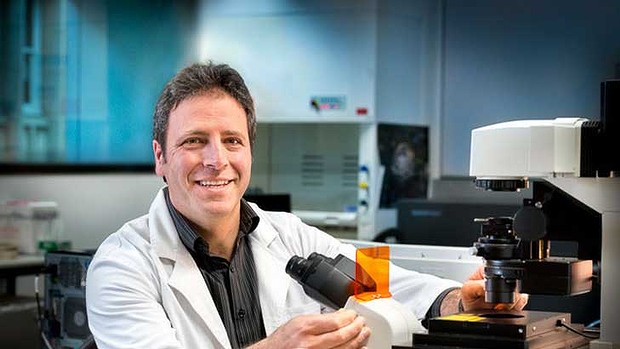
Professor Frank Caruso from Chemical and Biomolecular Engineering, University of Melbourne has won the 2014 Victoria Prize for Science and Innovation (Physical Sciences).
Professor Caruso leads a team of researchers examining the use of nano-materials for drug delivery, as well as better bio-imaging.
His ground-breaking work heralds a new era of research into nano-scale engineered particles that will improve healthcare and medical outcomes for patients suffering from a number of medical conditions.
He leads the Nanostructured Interfaces and Materials Science Group in the Melbourne School of Engineering.
“My work is varied and complex but it is research that will make a difference to the way we deliver therapies in the future,” Professor Caruso says.
“I am proud and honoured to be given this award and it is a credit to my research team and the support I receive from the University of Melbourne.”
As well as being responsible for many journal papers, Professor Caruso has been recognised internationally and across Australia.
He is ARC Australian Laureate Fellow and in 2012 was awarded the Royal Society of Victoria Medal for Excellence in Scientific Research in the Physical Sciences,
In 2013, he was awarded the prestigious 2013 CSIRO Eureka Prize for Leadership in Science – this category recognises an Australian individual who has demonstrated an outstanding role and impact on science.
Recently, Thomson Reuters announced its Highly Cited Researchers for 2014, listing the world’s leading thinkers in science and engineering whose research papers rank among the top one per cent most cited for their subject field and publication year, earning them the mark of exceptional impact.
Professor Caruso was listed as the top Australian in the Materials Science category. As a member of the Highly Cited Researcher list, Professor Caruso is also included in Thomson Reuters’ 2014 World’s Most Influential Scientific Minds.
Professor Ashley Bush from the Florey Institute of Neuroscience and Mental Health and a University of Melbourne alumnus, has won the 2014 Victoria Prize for Science and Innovation (Life Sciences).
Professor Bush was recognised for his work exploring how key proteins and metals interact to contribute to degenerative brain diseases such as Alzheimer’s.
The award ceremony was hosted by the Victorian State Government, through the Veski program.
The Victoria Prize, worth $50,000 was first awarded in 1998 and celebrates leadership, determination, endeavour and creativity as well as highlighting the many ways in which research and development of international significance are conducted in Victoria.
